JICA GrassRoots Support Project in Bangladesh and Volunteer Activity by Students Teams.
Model Project for Improvement on Oral Health Care in Rural Area in Bangladesh.
Basic Data and Informations
1) Introductions and Background
(1)Introductions:
There are very few medical/dental facilities and health services in rural area compared to those in urban areas at developing countries.
In view of its cost-effectiveness, most effective approaches to stay in good health are promoting awareness of Preventive Medicine/Dentistry at Schoolage.
School going children also have an influence over their families.
These approaches may lead to an improvement of the socio-economic conditions in rural area in the future.
A model project of school health services about Oral Health Promotion / Preventive Dentistry in a rural area of developing country started in 2009 as“Model project for improvement in oral health care in rural area of Bangladesh”.
In this project, school going children learned how to brush teeth properly and "oral hygiene" to keep teeth clean and to live a healthy life.
Officially, This is a GrassRoots Technical Support Project by The Japan International Cooperation Agency (JICA) ( Category : /Social Development with Human Security / Health) implemented with Hokkaido University (Japan) and Ministry of Health and Family Welfare Bangladesh.
The core of this project so called “Dental Camp” consisted of Oral checkups and Tooth brushing instruction groups including International students teams from both Japan and Bangladesh aimed at about 4,000 pupils in 12 target schools.
(2)Background: Diseases of civilization from Historical View:
Bangladeshi is a Moderates Muslim-majority nation living together with other religions.
Many people live up to Islam's ideals and traditional culture. Nephalism, abstinence from alcohol, is a religious principle and is effective to solve many social and family problems, to reduce crime, and to improve health.
Traditionally, "Sweets!" were considered as delicacies and offered any festival, ceremony, and celebratory feast in Islamic world instead of alcoholic beverage.

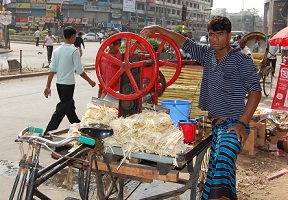
But these "Sweets" were beyond the reach at ordinary life for many poor people.
However, Dietary habits in Bangladesh are rapidly becoming westernized with a dramatic increase in consumption of snacks/soft foods by significant economic growth keeping the tradition of enjoying delicious "Sweets".
Dental caries and Periodontal(gum) disease are "Diseases of Civilization" deeply related to the food and daily habit.
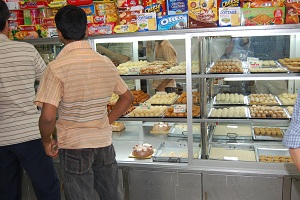
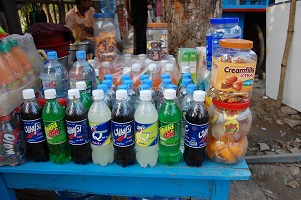
Thus, there is a need for the establishment of Countermeasures such as Oral health care instruction programs and School healthcare systems that were established in the US at the 1940s and in Japan at the 1960s.
(3)Background: View from Dentistry:
Periodontal disease and dental caries are commonly found in amongst people in Bangladesh,
mainly due to the unconcern of oral health care, which may also cause serious health.
Even officers working in health sector, have a lack of interest in andknowledge of oral diseases.

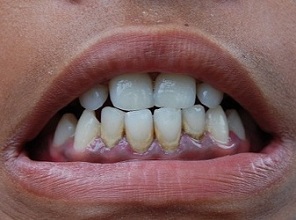
(4)Background: View from shortage of Formally Educated Dentist etc.:
In spite of the huge Population of Bangladesh (160 million), the number of active formally educated Dentists is less than 2,500.
This shortage of dentist is especially pronounced in rural areas.
Most of the dentists work in big cities, particularly in Dhaka, by many reasons and this situation will continue.
Moreover, as the medical/dental treatment cost is relatively high, the financial ability for receiving such a treatment for the rural people is very low.
(5)Background: Friday Free Clinic in Comilla


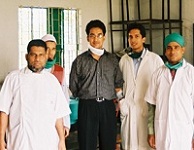
A group of Bangladesh dentists who graduated from Hokkaido University , including Dr. Mohiuddin Ahmed, Professor of Dhaka Dental College as a leader of the group, has been voluntarily working with other medical doctors to conduct
“Friday Free Clinic” in a rural village in Comilla district to provide free medical and dental service for the people in the area.

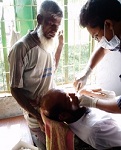

(6)Background: View for the future
Despite of their great and arduous efforts in giving dental care, it is now difficult for them to respond to the demand of local people because the number of dental patients has been increasing.
To improve peoples’ oral health condition, it needs to work on to change some peoples’ behaviors and to promote their awareness towards hygienic behaviors such as proper tooth brushing , sugar control, etc. in addition to the free treatment by the “Friday Free Clinic”.
-> Page Top